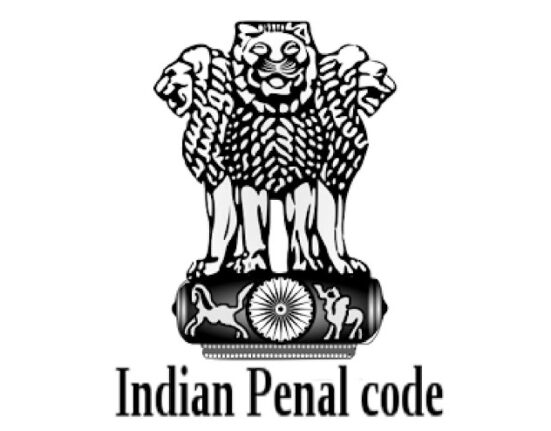Tshewang Dema, a 5th-year law student at LPU School of Law has written this article. It explains all about sections 415 to 420 of IPC which talks about cheating under IPC
INTRODUCTION
Chapter XVII of the Indian Penal Code broadly covers the offences against property. Sections 415 to 420 under the said Chapter deal with the offences of cheating under IPC. Section 415 defines the offence of cheating under IPC. Further provisions from sections 416 to 420 deal with particular aspects of cheating and punishment for the offence of cheating.
Hawkins defines cheating as deceitful practices in defrauding or endeavouring to defraud another of his own right by means of some artful device contrary to the plain rule of common honesty. [Smith and Hogan, criminal law 10th edition]. Cheating at common law was a misdemeanour and was also punishable by imprisonment and a fine.
As we see cheating is a criminal offence and it has a myriad of crimes associated with it. It can also be seen in various forms. Cheating can be described as a dishonest or unfair act done to gain an advantage over the other. Cheating is saying or doing something dishonesty which makes someone believe that something is true when it is not. It is a term we often hear in our daily lives but don’t know its legal aspects. Moreover, to make a more clear understanding from a legal point of view. This article would be dealing with cheating under IPC. And its constituents, punishment for this offence and other legal issues related to it. Further, this paper will also discuss the legal remedies available for this offence.
HISTORICAL BACKGROUND OF THE INDIAN PENAL CODE
The Indian Penal Code (IPC) is the main criminal code of India. It is a comprehensive code intended to cover all substantive aspects of criminal law. Moreover, the code was drafted in 1860 on the recommendations of the first law commission of India. Established in 1834 under the Government of India Act 1833 under the Chairmanship of Thomas Babington Macaulay. It came into force in British India during the early British Raj period in 1862. However, it did not apply automatically in the Princely states, which had their own courts until the 1940s. The Code came into operation on 1st January 1862. Macaulay did not survive to see his masterpiece come into force had died near the end of 1859. The Code has since been amended several times and is now supplemented by other criminal provisions.
SECTION 415 OF IPC DEFINES CHEATING[1]
Cheating.—Whoever, by deceiving any person, fraudulently or dishonestly induces the person so deceived to deliver any property to any person, or to consent that any person shall retain any property, or intentionally induces the person so deceived to do or omit to do anything which he would not do or omit if he were not so deceived, and which act or omission causes or is likely to cause damage or harm to that person in body, mind, reputation or property, is said to “cheat”. Explanation.—A dishonest concealment of facts is a deception within the meaning of this section.
Illustrations
- (a) A, by falsely pretending to be in the Civil Service, intentionally deceives Z, and thus dishonestly induces Z to let him have on credit goods for which he does not mean to pay. A cheats.
- (b) A, by putting a counterfeit mark on an article, intentionally deceives Z into a belief that this article was made by a certain celebrated manufacturer, and thus dishonestly induces Z to buy and pay for the article. A cheats.
- (c) A, by exhibiting to Z a false sample of an article, intentionally deceives Z into believing that the article corresponds with the sample, and thus, dishonestly induces Z to buy and pay for the article. A cheats.
- (d) A, by tendering in payment for an article a bill on a house with which A keeps no money, and by which A expects that the bill will be dishonored, intentionally deceives Z, and thus dishonestly induces Z to deliver the article, intending not to pay for it. A cheats.
- (e) A, by pledging as diamonds article which he knows are not diamonds, intentionally deceives Z, and thus dishonestly induces Z to lend money. A cheats.
- (f) A intentionally deceives Z into a belief that A means to repay any money that Z may lend to him and thus dishonestly induces Z to lend him money. A not intending to repay it. A cheats.
- (g) A intentionally deceives Z into a belief that A has performed A’s part of a contract made with Z, which he has not performed, and thus dishonestly induces Z to pay money. A cheats
EXPLANATION OF THE SECTION 415 IPC- CHEATING [2]
Scope Of Section 415
Cheating is defined under Section 415 of the Indian Penal Code (IPC) as whoever fraudulently or dishonestly deceives a person in order to induce that person to deliver a property to any person or to consent to retain any property. If a person intentionally induces a person to do or omit to do any act which he would not have done if he was not deceived to do so and the act has caused harm to that person in body, mind, reputation or property, then the person who fraudulently, dishonestly ors intentionally induced the other person is said to cheat. Any dishonest concealment of facts which can deceive a person to do an act which he would not have done otherwise is also cheating within the meaning of this section.
Essential Ingredients Of Cheating in IPC
The Section requires:
- deception of any person.
- fraudulently or dishonestly inducing that person to deliver any property to any person or to consent that any person shall retain any property; or
- intentionally inducing a person to do or omit to do anything which he would not do or omit if he were not so deceived, and the act or omission causes or is likely to cause damage or harm to that person in body, mind, reputation or property.
Constituents of Cheating
1) Acting Dishonestly
The term ‘acting dishonestly’ has been defined under section 24 of Indian Penal Code. It is defined as, “when the doing of any act or not doing of any act causes wrongful gain of property to one person or a wrongful loss of property to a person, the said act is done dishonestly.”
2) Property
Property has a much wider meaning. It does not only include money but other things as well which can be measured in the terms of money. The property should also be in complete ownership of the person and he must have the full right to enjoy its possession.
3) Fraudulently
Being fraudulent means which involves deception mainly criminal deception. It is characterized by fraud. According to section 25 “a person is said to do a thing fraudulently if he does that thing with intent to defraud but not otherwise.”
4) Mens Rea
Mens rea is the intention or action to constitute a crime. It is a mental state of an offender while committing a crime. It has to be proved beyond any doubt that the accused has actively contributed in a crime. And that crime has affected another person’s property.
ILLUSTRATION
A, sold an article to B saying that it is made up of gold when it is not, intentionally deceives him and thus commits the offence of cheating under IPC.
CASE LAW ON SECTION 415 IPC- Cheating
In the case of National Insurance Co. v. Narendra Kumar Jhanjari,[3] the Patna High Court following the judgment of the Supreme Court in State of Kerala v. S. A. Pareed Pillai,[4] held that where a person was persuaded to subscribe for a policy and the insurer subsequently fails to recover the amount on the happening of the event insured against the dishonest interest cannot be inferred. Hence the insurer cannot be held liable for cheating under IPC.
SECTION 416 OF IPC
Cheating by personation.—A person is said to “cheat by personation” if he cheats by pretending to be some other person, or by knowingly substituting one person for or another, or representing that he or any other person is a person other than he or such other person really is. Explanation.—The offence is committed whether the individual personated is a real or imaginary person.
Illustrations
(a) A cheats by pretending to be a certain rich banker of the same name Thus A cheats by personation.
(b) A cheats by pretending to be B, a person who is deceased thus A cheats by personation.
EXPLANATION OF THE SECTION 416 IPC [5]
Under Section 416 of IPC, cheating by personation is explained as if a person cheats on someone by pretending to be a particular person, or if a person knowingly substitutes a particular person for another, or represents a person to be some other person then he is said to cheat by personation. The person substituting a person for another should have knowledge that such other person is a different person from the person he is representing. The offence of cheating by personation is committed when the person who is personated is a real person and not an imaginary person.
CASE LAW
In the case of Sushil Kumar Datta vs State,[6] the accused personated himself as a scheduled caste candidate and appeared for the examination of Indian Administrative Service. He was appointed in that cadre because of his false representation of being a scheduled caste. It was held by the court that he was guilty of the offence of cheating by personation under IPC. As he did not belong to scheduled caste and falsely represented himself as scheduled caste. Hence, his conviction for cheating was held to be justified under the said section.
SECTION 417 OF IPC–Punishment for cheating
Punishment for cheating.—Whoever cheats shall be punished with imprisonment of either description for a term which may extend to one year, or with fine, or with both.
EXPLANATION OF THE SECTION 417 IPC[7]
Section 417 prescribes punishment for the offence of cheating under IPC which is defined under section 415. The punishment imposed under section 417 is imprisonment of a term which may extend to one year or fine or both.
SECTION 418 OF IPC
Cheating with knowledge that wrongful loss may ensue to person whose interest offender is bound to protect.—Whoever cheats with the knowledge that he is likely thereby to cause wrongful loss to a person whose interest in the transaction to which the cheating relates, he was bound, either by law, or by a legal contract, to protect, shall be punished with imprisonment of either description for a term which may extend to three years, or with fine, or with both.
EXPLANATION OF THE SECTION 418 IPC [8]
fiduciary relationship
A fiduciary relationship is any relationship which exists between two parties where they share utmost good faith and confidence for a transaction. Section 418 of IPC applies to the cases of cheating wherein there was a fiduciary relationship between the parties. Thus, Cheating out of the fiduciary relationship can be done by guardians, trustees, agents, solicitors, manager of a Hindu Family, managers or directors of a company or a bank in fraud to the shareholders etc. Moreover, Section 418 of IPC deals with cases in which trust exists between the parties and there is an abuse of the trust by cheating. Section 418 punishes those parties in the case of cheating who owed a special responsibility towards the other party. The parties are punished for misusing and breaching the trust which existed between them.
It is the liability of parties who are in a fiduciary relationship to protect the interest of the parties and not to misuse the trust which exists between them. It is the responsibility of the party to protect the interest of the other party and if he fails to protect it and breaches the trust by cheating, he can be held liable for the offence of cheating under Section 418 of the IPC. The person who makes a statement in a fiduciary relationship knowing that it is a false statement with dishonest intention then the person will be liable for the offence of cheating.
Intention
Intention plays an important part in the offence if there isn’t an intention to cheat then it cannot be established as an offence under cheating. The offence is a non-cognizable offence and is bailable and triable by a Magistrate.
This section punishes such cases of cheating where the offender knows that wrongful loss to such a person may ensue whose interest he is bound to protect. It states that whoever cheats with the knowledge that he is thereby likely to cause wrongful loss to such a person whose interest in the transaction to which the cheating relates, he was bound, either by law or by a legal contract, to protect, shall be punished with simple or rigorous imprisonment for a term extending up to three years, or with fine, or with both.[9]
CASE LAW
In the case of S. Shankarmani v. Nibar Ranjan Parida,[10] a lawsuit was filed for cheating by a landlord against the bank. The bank wanted to take the landlord’s house on hire and for that, the landlord furnished his house. He incurred a huge expense in furnishing the house. But the bank because of some reasons which were under its control could not take the house on rent. The bank did not intend to cheat or deceive the landlord. It was held by the court that the bank was not liable for cheating under Section 418 of IPC. As the intention which plays an important part in the offence was not present.
SECTION 419 OF IPC
Punishment for cheating by personation.—Whoever cheats by personation shall be punished with imprisonment of either description for a term which may extend to three years, or with fine, or with both.
EXPLANATION OF SECTION 419 OF IPC
Section 419 explains the punishment for cheating by the act of personation where they will be punished with imprisonment of either description for a term which may extend to three years or with a fine or both
SECTION 420 OF IPC -Cheating and dishonestly inducing delivery of property
Cheating and dishonestly inducing delivery of property.—Whoever cheats and thereby dishonestly induces the person deceived to deliver any property to any person, or to make, alter or destroy the whole or any part of a valuable security, or anything which is signed or sealed, and which is capable of being converted into a valuable security, shall be punished with imprisonment of either description for a term which may extend to seven years, and shall also be liable to fine.
EXPLANATION OF THE SECTION 420 IPC[11]
The provision under section 420 considers cheating of a more serious nature than the offence of cheating as provided for under section 415. The offence of cheating under section 420 is compoundable by the person who cheated with the permission of the court. But the offence is cognizable and non-bailable. Hence, section 420 applies if the following essentials are fulfilled-
1. There must be an offence of cheating
2. Cheating also needs to be accompanied by the dishonest inducement of delivery of property or destruction or alteration of whole or part, of the valuable security or of the property which is signed and sealed or of the property which is capable of being converted into a valuable security.
Further, the provision also imposes punishment for the offence under section 420. The punishment is imprisonment for a term which may extend to seven years and the convict is also liable to a fine.
Cognizance of an offence under Section 420
The offence is cognizable and falls under the category of Non-Bailable in IPC section 420. It is triable by Magistrate of the First Class and therefore FIR or Application u/s 156(3) or Private Complaint u/s 200 may be preferred.
Punishment of an offence under Section 420
The punishment under section 420 IPC which is give for the offence is imprisonment for a term which may extend to seven years, and also be liable to fine.
WHEN DOES BREACH OF CONTRACT AMOUNT TO CHEATING?
| Cheating | Breach of Contract |
| It is mentioned u/s 415 to 420 of Indian Penal Code, 1860. | It is mentioned u/s 73 of Indian Contract Act, 1872. |
| It is dealt under criminal law. | It is dealt under civil law. |
| It is a dishonest act done in order to gain advantage over the other. | It is a cause of action which occurs when the binding agreement is not performed. |
| In it intention to deceive exists at the time when inducement is made. In the beginning, only the person must have fraudulent intention regarding the promise to constitute it as an offence of cheating. | In it the malice intention does not exist from the beginning of the contract. The breach is done due to some reasons at the time when it is about to get binding |
Case Law: S.W. Palanitkar V. State of Bihar–[12] – Supreme Court
Under this case Supreme court held that to convict a person for the offence of cheating there should be pre-existing dishonest or fraudulent intention of the person from the beginning but in case of Breach of Contract the dishonest intention is not present in the beginning of the agreement.
FRAUD & CHEATING DIFFERENCE IN IPC
| Cheating | Fraud |
| It is mentioned u/s 415 to 420 of Indian Penal Code, 1860. | Implications of fraud are mentioned in section 421, 422, 423, 424 of Indian Penal Code, 1860. |
| It is a dishonest act done in order to gain advantage over the other. | It is a deliberate deception to secure unfair advantage over of the other. It is done to gain by another’s loss. |
| In order to maintain suit for cheating there are two situations which are necessary subscribed in section 415 i.e. deception and inducement. | In order to maintain the suit for fraud intention to deceive is sufficient. |
| Cheating is not limited only to contracts. | Fraud basically relates more to contracts. |
DISHONOUR OF CHEQUE & CHEATING
Dishonour of Cheque is maintained u/s 138 of Negotiable Instrument Act while the offence of Cheating is mentioned u/s 420 of Indian Penal Code. But in some cases Dishonor of Cheque can be taken as an offence of cheating.
For example, if the person who has issued the cheque has already closed his bank account. But still issues a cheque to some other person in exchange of payment of goods he has purchased from that person. In this case, the person issuing the cheque is dishonest as he is aware of the fact that the cheque will get bounced. The person has deceived the other by doing so as he knew from the start about the consequences of the same. So, this may be an example where offence u/s 420 can be made out for dishonour of cheque.
The offences under Section 138 N.I. Act and Section 420 IPC are two different offences altogether. Whether this offence or that offence is made out would depend on the facts of each case. We have to check the ingredients of which particular offence are satisfied from the facts of your case.
CONCLUSION: Cheating Under IPC
Cheating is an offence under IPC in which a person induces the other by deceiving the person to do any act or to omit to do an act. The intention of the accused plays an important part and is taken into consideration while deciding his liability. The two main elements that have to be considered in order to constitute the offence is deception and inducement. The intention to cheat by the accused at the time of making a false representation is to be proved. It must be shown that a promise was made by the accused. And he failed to keep the promise and further, no effort was put in by him in order to keep the promise.
BIBLIOGRAPHY
http://lawtimesjournal.in/cheating/#_edn3
https://www.shareyouressays.com/knowledge/section-418-of-indian-penal-code-1860-explained/118654
https://lawrato.com/indian-kanoon/ipc/section-418
https://legalsarcasm.com/legal-notes/cheating-under-indian-penal-code-1860/
[1] The Indian Penal Code, The Act 45 Of 1860
[2] Ipleader, Cheating: a criminal offence under the Indian Penal Code, available at: https://blog.ipleaders.in/cheating-a-criminal-offence-under-the-indian-penal-code/ (visited on April 5, 2021).
[3] 1990 Cr LJ 773 (Pat)
[4] AIR 1973 SC 326
[5] Ipleader, Cheating: a criminal offence under the Indian Penal Code, available at: https://blog.ipleaders.in/cheating-a-criminal-offence-under-the-indian-penal-code/ (visited on April 5, 2021).
[6] 1985 CriLJ 1948
[7] Lawtimesjournal, Cheating, available at: http://lawtimesjournal.in/cheating/#_edn3 (visited on April 8, 2021).
[8] Ipleader, Cheating: a criminal offence under the Indian Penal Code, available at: https://blog.ipleaders.in/cheating-a-criminal-offence-under-the-indian-penal-code/ (visited on April 5, 2021).
[9] Lawtimesjournal, Cheating, available at: http://lawtimesjournal.in/cheating/#_edn3 (visited on April 8, 2021).
[10] A.I.R 1957 SC 857
[11] Ipleader, Cheating: a criminal offence under the Indian Penal Code, available at: https://blog.ipleaders.in/cheating-a-criminal-offence-under-the-indian-penal-code/ (visited on April 5, 2021).
[12] 2001(10) TMI 1150
![]()






Leave feedback about this